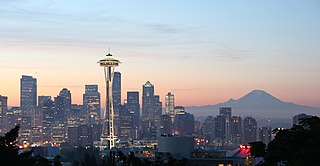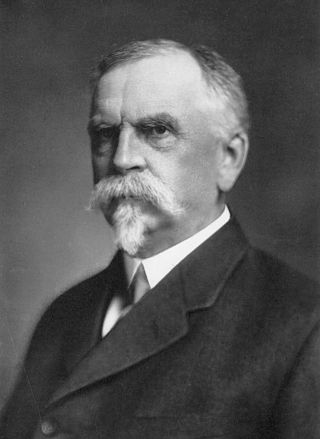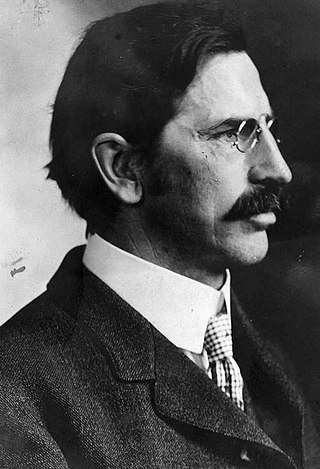Related Research Articles

The Pacific Northwest (PNW), sometimes referred to as Cascadia, is a geographic region in western North America bounded by its coastal waters of the Pacific Ocean to the west and, loosely, by the Rocky Mountains to the east. Though no official boundary exists, the most common conception includes the U.S. states of Oregon, Washington, northern Idaho, and the Canadian province of British Columbia. Some broader conceptions reach north into Alaska and Yukon, south into northern California, and east into western Montana. Other conceptions may be limited to the coastal areas west of the Cascade and Coast mountains. The variety of definitions can be attributed to partially overlapping commonalities of the region's history, culture, geography, society, ecosystems, and other factors.

Portland State University (PSU) is a public research university in Portland, Oregon. It was founded in 1946 as a post-secondary educational institution for World War II veterans. It evolved into a four-year college over the following two decades and was granted university status in 1969. It is one of two public universities in Oregon that are located in a large city. It is governed by a board of trustees. PSU is classified among "R2: Doctoral Universities – High research activity".

The Chinook salmon is the largest and most valuable species of Pacific salmon. Its common name is derived from the Chinookan peoples. Other vernacular names for the species include king salmon, Quinnat salmon, Tsumen, spring salmon, chrome hog, Blackmouth, and Tyee salmon. The scientific species name is based on the Russian common name chavycha (чавыча).

Harvey Whitefield Scott (1838–1910) was an American pioneer who traveled to Oregon in 1852. Scott was a long-time editorialist, and eventual part owner of The Oregonian newspaper. Scott was regarded by his contemporaries as instrumental in bringing the state of Oregon firmly into the political camp of the Republican Party.

The history of Oregon, a U.S. state, may be considered in five eras: geologic history, inhabitation by native peoples, early exploration by Europeans, settlement by pioneers, and modern development.

A fish wheel, also known as a salmon wheel, is a device situated in rivers to catch fish which looks and operates like a watermill. However, in addition to paddles, a fish wheel is outfitted with wire baskets designed to catch and carry fish from the water and into a nearby holding tank. The current of the river presses against the submerged paddles and rotates the wheel, passing the baskets through the water where they intercept fish that are swimming or drifting. Naturally, a strong current is most effective in spinning the wheel, so fish wheels are typically situated in shallow rivers with brisk currents, close to rapids, or waterfalls. The baskets are built at an outward-facing slant with an open end so the fish slide out of the opening and into the holding tank where they await collection. Yield is increased if fish swimming upstream are channeled toward the wheel by weirs.

Wedderburn is an unincorporated coastal community in Curry County, Oregon, United States. It is to the north of, and across the mouth of the Rogue River from Gold Beach, on U.S. Route 101. The Isaac Lee Patterson Bridge connects Wedderburn with Gold Beach.

The history of steamboats on the Oregon Coast begins in the late 19th century. Before the development of modern road and rail networks, transportation on the coast of Oregon was largely water-borne. This article focuses on inland steamboats and similar craft operating in, from south to north on the coast: Rogue River, Coquille River, Coos Bay, Umpqua River, Siuslaw Bay, Yaquina Bay, Siletz River, and Tillamook Bay. The boats were all very small, nothing like the big sternwheelers and propeller boats that ran on the Columbia River or Puget Sound. There were many of them, however, and they came to be known as the "mosquito fleet."

The Mary D. Hume was a steamer built at Gold Beach, Oregon in 1881, by R. D. Hume, a pioneer and early businessman in that area. Gold Beach was then called Ellensburg. The Hume had a long career, first hauling goods between Oregon and San Francisco, then as a whaler in Alaska, as a service vessel in the Alaskan cannery trade, then as a tugboat. She was retired in 1977 and returned to Gold Beach. In 1985 she sank in the Rogue River and has remained there ever since as a derelict vessel on the shoreline. The Hume is listed on the National Register of Historic Places.
Elizabeth Woody is an American Navajo/Warm Springs/Wasco/Yakama artist, author, and educator. In March 2016, she was the first Native American to be named poet laureate of Oregon by Governor Kate Brown.

Robert Deniston Hume was a cannery owner, pioneer hatchery operator, politician, author, and self-described "pygmy monopolist" who controlled salmon fishing for 32 years on the lower Rogue River in U.S. state of Oregon. Born in Augusta, Maine, and reared by foster parents on a farm, Hume moved at age 18 to San Francisco to join a salmon-canning business started by two of his brothers. They later re-located to Astoria on the Columbia River, where they prospered. After the death of his first wife and their two young children, Hume moved again and started anew in Gold Beach, at the mouth of the Rogue.

For a useful starting point goto Oregon Encyclopedia of History and Culture (2022). Not yet in print format; it is online here with 2000 articles.
The following is a timeline of the history of the city of Portland, Oregon, United States.

Frank Manley Warren Sr. was a prominent American businessman from Oregon who made his fortune in the salmon canning industry. The community of Warrendale, Oregon, the site of one of his canneries, was named for him. He died in the sinking of Titanic.

Frederic George Young (1858–1929) was an educator in the U.S. state of Oregon. He was born in Burnett, Wisconsin on June 3, 1858, and after graduating from Johns Hopkins University in 1886, he taught in Wisconsin and South Dakota. He moved to Portland in 1890, and served as principal at its high school and as president of Albany College before being appointed professor of economics and history at the University of Oregon in 1895. He was a founding officer of the Oregon Historical Society in 1898, and as editor of its Oregon Historical Quarterly from its founding in 1900 through the December 1928 issue. He served on the Oregon Commission for the Lewis and Clark Centennial Exposition. He was dean of Oregon's School of Sociology from 1919 until his death.
Dorothy Olga Johansen was an American historian of the Pacific Northwest.
Stephen Walter Haycox is an emeritus professor of history at the University of Alaska Anchorage (UAA), author, and columnist for the Anchorage Daily News. He has written about the history of Alaska.
W. Turrentine "Turpie" Jackson was an American professor of history, specializing in Western U.S. history.
Adolphus Dyonisius Griffin was an American newspaper editor and publisher in the Pacific Northwest, Los Angeles, and Kansas who focused on African-American causes, including disenfranchisement in business and politics. Also known as A. D. Griffin, he founded The New Age, Portland's first Black newspaper, in 1896. He was friends with Booker T. Washington and participated in the Portland chapter of the National Afro-American Council. He was also an investor in real estate.
References
- 1 2 3 4 "Gordon B. Dodds (1932-2003)". www.oregonencyclopedia.org.
- ↑ "The Salmon King of Oregon | Gordon B. Dodds". University of North Carolina Press.
- ↑ Jackson, W. Turrentine (1961). "Reviewed work: Our National Park Policy: A Critical History, John Ise". Pacific Historical Review. 30 (4): 415–418. doi:10.2307/3636435. JSTOR 3636435 – via JSTOR.
- ↑ Dodds, Gordon B. (September 17, 1963). The Salmon King of Oregon: R. D. Hume and the Pacific Fisheries. University of North Carolina Press. ISBN 9780807808719 – via Google Books.